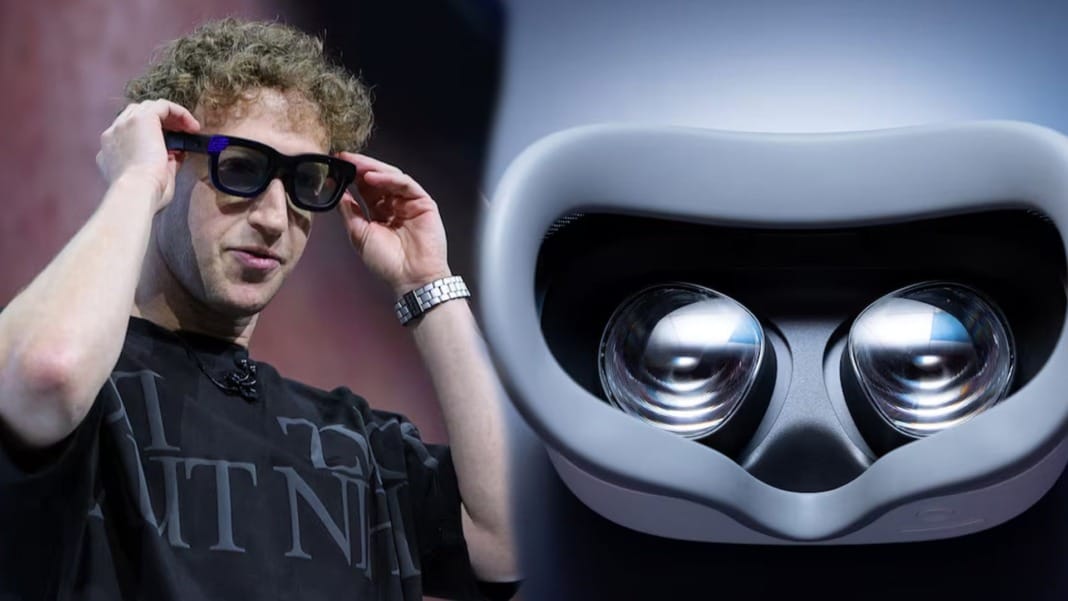If you’re intrigued by what augmented reality (AR) could mean for the future, Meta’s Orion prototype might give you the most precise picture yet. This innovation from Meta goes beyond being an advanced piece of tech—it’s an ambitious step towards a digital landscape that requires less dependence on traditional devices like smartphones. Meta sees Orion as a potential replacement for smartphones altogether, envisioning that AR glasses might soon become “the main way we do computing.”
Meta is betting big on Orion and on making this technology available to more people. However, the company still faces a few challenges. Orion is currently too costly for general use as a prototype, with a production cost close to US$10,000. Meta will need to work to make Orion affordable while enhancing its hardware and software. Ultimately, Meta will need to convince you and other users that AR glasses with AI and eye-tracking are practical and worth using.
Meta’s approach to accessible AR
Meta has yet to reveal when Orion will be available to consumers or the final price. However, Meta is focused on overcoming the high production costs and making the technology more accessible. The company is working on making Orion smaller, lighter, and less complex without sacrificing its functionality. If Meta succeeds, Orion could be one of the most significant steps towards AR as part of everyday life.
Since its debut at the Connect conference, Meta has been excited to show off Orion’s potential. Once you experience Orion, you’ll understand the enthusiasm. Meta’s design efforts go far beyond tech specs; they aim to create a device that looks, feels, and works like a practical alternative to traditional computing devices.
Meta has gone to great lengths to design Orion as a pair of AR glasses that look almost like regular eyewear. Unlike other attempts at AR, such as Snap’s Spectacles, Orion’s frames are much closer to conventional glasses in appearance. Though the frames are still broader and chunkier than most prescription glasses, they’re less noticeable than many other AR devices. Weighing 98 grams, they are heavier than typical eyewear but don’t feel excessively weighty.
Orion’s functionality depends on two other key components: a wireless “compute puck” that acts as the processing hub and an EMG wristband that lets you control the AR interface with simple gestures. The compact and lightweight compute puck connects the glasses to the processing power they need. At the same time, the EMG wristband resembles a standard watch strap and detects your hand movements through tiny electrical signals, making control simple and intuitive.
With quick setup and calibration, Orion’s interface becomes surprisingly natural. Using eye-tracking technology, you can navigate the AR system by simply looking around. To select an option, all it takes is a small hand gesture, like tapping your thumb and index finger together. The EMG wristband, a result of Meta’s years of neural research, translates these slight movements into commands, making the AR experience feel effortless. This setup provides more precision than VR hand tracking and doesn’t require you to make significant, visible movements, keeping interactions simple and unobtrusive.
A look at Orion’s capabilities
During a demo, Meta showcased several scenarios to highlight what Orion can do. You could ask Meta AI to generate images or create recipes based on nearby ingredients. Orion can project recipe instructions into your surroundings, turning cooking into a streamlined, hands-free experience.
You could also take video calls using Meta’s Codec Avatars, watch YouTube, scroll through Instagram, or reply to messages, all within the AR interface. Unlike VR, where you’re cut off from the real world, Orion overlays digital content onto your environment, enhancing the experience without isolating you. This makes AR content blend seamlessly with reality, adding digital convenience without disconnecting you from your surroundings.
Orion’s gaming capabilities are also impressive. Imagine playing a game like Stargazer, where you control a spaceship with head movements and fire at enemies with finger taps. With Orion, you’re able to play these games without losing awareness of the real world around you. Even as you play, you can converse or engage with people nearby—a stark contrast to VR, which can often feel isolating.
Orion’s technology includes silicon carbide lenses, micro-LED projectors, and clear waveguides, creating a transparent, vibrant AR display. With a 70-degree field of view, Orion offers a comprehensive, immersive experience that lets you keep multiple windows in view simultaneously. The display isn’t quite as encompassing as sci-fi AR portrayals, but it offers a significant field of view that keeps AR content comfortably in sight.
However, the display resolution could still be improved. Orion’s visuals currently measure at 13 pixels per degree, and while they’re visible and functional, the colours can appear muted and text less sharp. For comparison, Snap’s AR Spectacles offer 37 pixels per degree, which results in crisper images. Meta has addressed this as a priority, with plans to increase brightness and resolution. Ming Hua, Meta’s VP of Wearable Devices, hinted at future updates that would double the current pixel density, improving visual quality and making Orion even more practical. Additionally, Meta aims to lower the final price to be similar to a high-end smartphone.
What Orion could mean for you?
Leaving Meta’s headquarters after a demo of Orion, it’s easy to see how this technology could change how you navigate the digital world. Similar to Meta’s Quest VR headset, which went from a prototype to a mainstream product, Orion shows promising potential. Meta’s investment in Orion represents a massive leap towards a world where digital content is no longer limited to phone or computer screens. Still, it becomes a seamless part of everyday reality.
If Meta succeeds in refining Orion and bringing down its price, you might one day rely on these glasses instead of your smartphone to navigate your digital life. Whether it’s for work, entertainment, or social interaction, Orion could introduce a new era of computing, one that’s as simple as putting on a pair of glasses.





